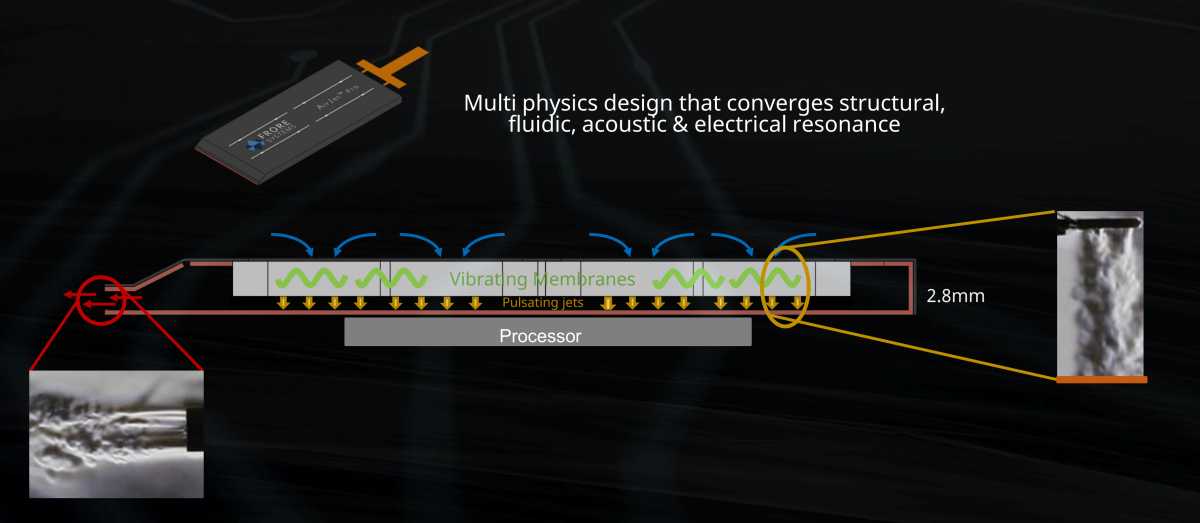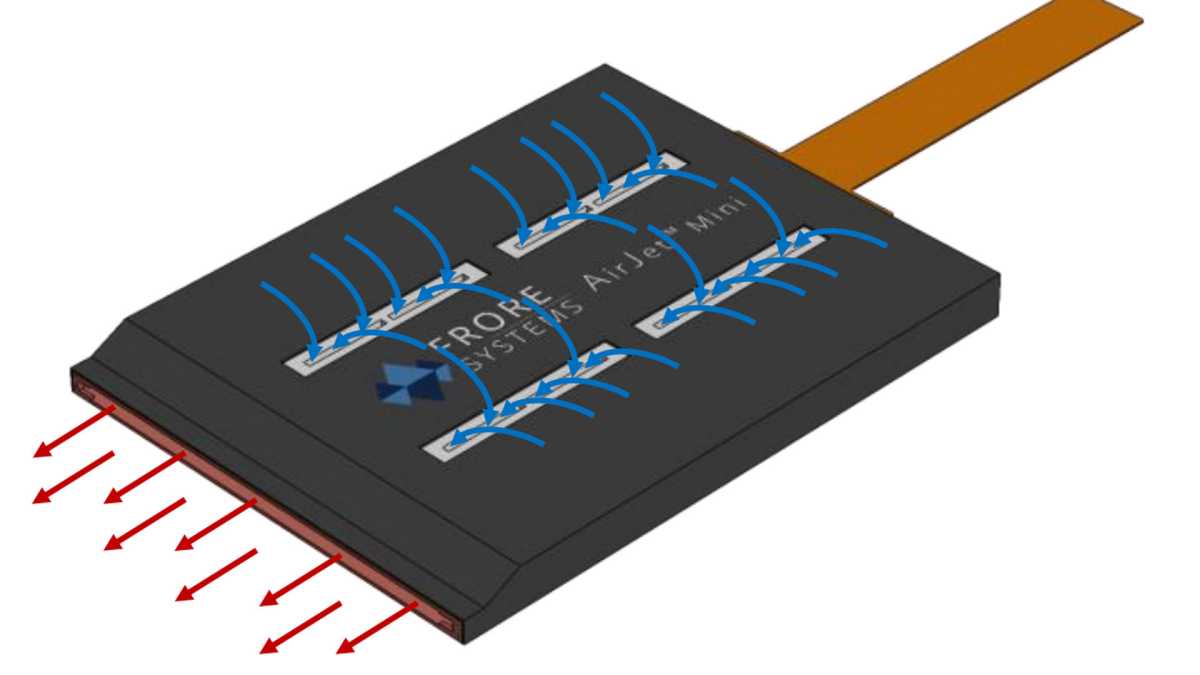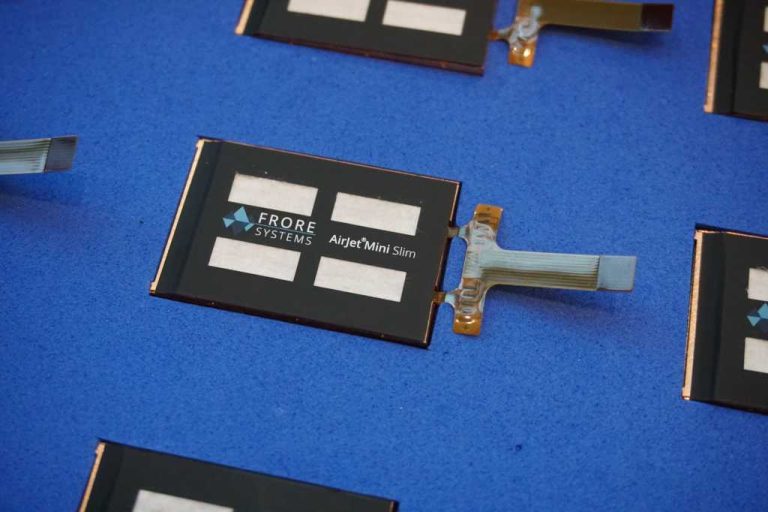The Frore Systems AirJet Mini and AirJet Pro are active cooling chips that enable devices to become thinner, quieter, cooler and more powerful. This technology has the potential to replace traditional fans in computers and other devices and is being promoted as an effective alternative to traditional fan systems.
The AirJet is a self-contained, solid, active heat dissipation unit that runs quietly while being ultra-thin and lightweight. It removes heat without using bulky heatsinks, fans, or liquid cooling, making it suitable for very low-profile, dust-tight devices.
In-depth reading: Frore launches a lightweight, self-cleaning cooling chip
The AirJet Mini can be connected to the target device via a copper heat exchanger and is equipped with small diaphragms that vibrate with ultrasonic waves to generate the desired airflow. It is claimed to be ten times more efficient than a fan and can be increased by adding more chips to remove additional heat. The more powerful AirJet Pro removes 10.5 watts of heat at 24 dB and consumes a maximum of 1.75 watts of power.

For systems
The AirJet consists of a solid cooling unit, which effectively removes heat from the heat source, and an ultrasonic transducer, which is responsible for air movement. The ultrasonic transducer generates high-frequency sound waves that strike the membrane and cause it to vibrate.
This creates an airflow that removes heat from the heat source. This combination of powerful cooling and ultrasonic technology makes the AirJet a powerful and quiet cooling solution.
Compared to traditional computer fans, AirJet offers a number of advantages that emphasize its application potential in various devices, from thin laptops to mini desktops, gaming smartphones, 4K webcams, doorbell cameras and LED lights. It's already been introduced in a mini PC from Zotac, and at CES 2024, Frore demonstrated how the AirJet Mini can be used to eliminate the performance bottleneck in heat-sensitive SSDs.
In-depth reading: AirJet solid-state cooling could radically improve future laptops

For systems
One concrete application example of AirJet is the potential performance improvement of Apple's MacBook Air, which is known to operate without a fan. By integrating the AirJet system, a noticeable improvement in the cooling and performance of the device is achieved, as shown in the video below.
According to Frore Systems, AirJet can increase cooling performance by up to 30 percent compared to traditional fans, while reducing noise levels by up to 15 decibels. We've seen product demos that demonstrated just that.
Frore Systems' AirJet technology has the potential to replace traditional fan systems in a wide range of devices, providing more powerful and quieter cooling. The company also plans to develop the next-generation AirJet, which will be thinner than current versions but dissipate the same amount of heat, using a principle it cheekily calls “Frore's Law.”
This article was translated from German to English and originally appeared on pcwelt.de.

